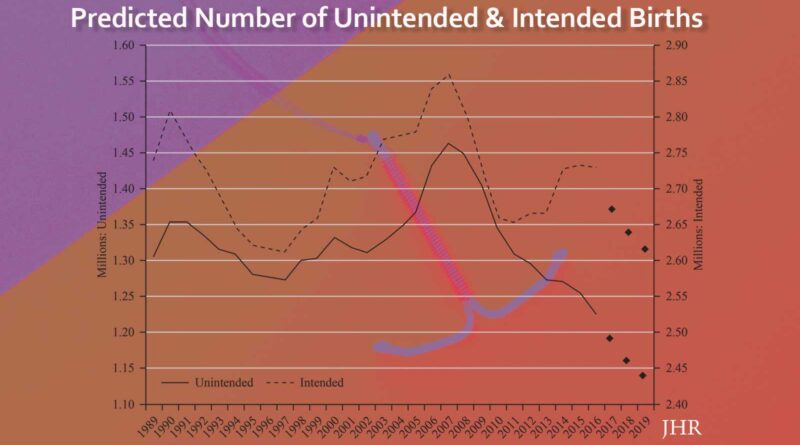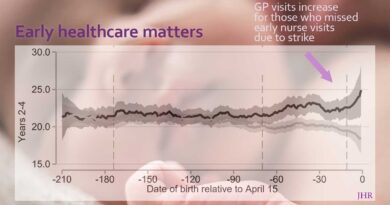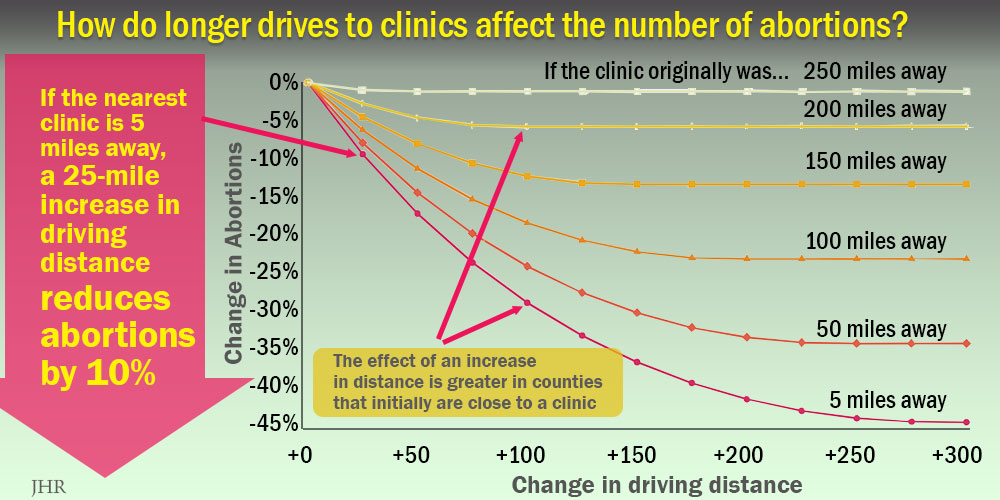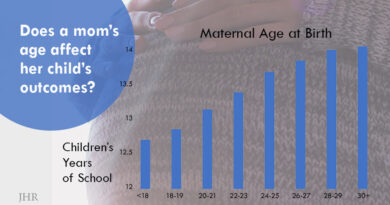Baby-less Recovery? After the Great Recession U.S. Women Avoided Unintended Births
Fertility tends to fall during recessions and rebound as the economy recovers, but the expected recovery in U.S. fertility following the Great Recession did not happen. Birth rates continued to fall throughout the recovery period, reaching historic lows by 2019. The drop in fertility was larger among young women and unmarried women, whose births are more likely to be unintended.
Researchers Kasey Buckles, Melanie Guldi, and Lucie Schmidt combine evidence from two data sets to estimate birth intention consistently over time. They find that between 2007 and 2019 intended births fell by just 8.5% while unintended births fell by 22%. The 22% decline translates to nearly 323,000 fewer unintended births between these years, or 57% of the total decline. While both unintended and intended births fell during the Great Recession, unintended births continued to fall throughout the recovery even as intended births actually rebounded, at least until 2016.
The researchers show that the decline in unintended births is related to three factors: changes in the composition of women of childbearing age, reductions in sexual activity, and large shifts toward more effective methods of contraception (like IUDs) among young women.
The baby-less recovery from the Great Recession has puzzled social scientists; the researchers’ findings show that it was not baby-less for women who were likely to have intended births. While the declining fertility rate in the United States presents some challenges for public policy, the decline in unintended births will be viewed by many as a positive development. This study highlights the importance of considering birth intention when identifying the causes of declining fertility, and when evaluating potential policy solutions.
Read the article in the Journal of Human Resources: “The Great Recession’s Baby-less Recovery: The Role of Unintended Births,” by Kasey Buckles, Melanie Guldi, and Lucie Schmidt.
***
Kasey Buckles is Professor of Economics at the University of Notre Dame, a Research Associate at the National Bureau of Economic Research, and a Research Fellow at IZA (@Kasey_Buckles, @kaseybuckles.bsky.social). Melanie Guldi is Associate Professor of Economics at the University of Central Florida and a Research Fellow at IZA (@MGuldi, @mguldi.bsky.social). Lucie Schmidt is the Robert A. Woods Professor of Economics at Smith College and a Research Associate at the National Bureau of Economic Research (@LucieGSchmidt, @luciegschmidt.bsky.social).




